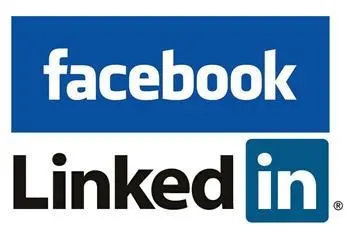Why Do Employers Use Social Media to Screen Candidates?
From job advertising to employer branding, the benefits of social media have been immeasurable when it comes to attracting the best talent for organizations. And now, networking platforms are taking center stage in employment screening, too.
As many as 70% of employers reportedly rely on social media for vetting candidates during the hiring process.
HR teams may go through any number of networking sites depending on their hiring requirements. What they would all typically look at, however, is the profile bio, posts, and interactions (such as comments, likes, reshares, and reviews).
Is it legal? Technically, yes, but within certain federal and local regulations in place to protect candidates’ rights (for instance, employers can’t disqualify someone based on protected characteristic information they find online).
Then there’s the question of unconscious biases and privacy intrusions. Without a doubt, all these are debatable. However, the fact remains that a large majority of hiring managers today scrutinize potential employees’ social behavior before making hiring decisions.
So, Why Are Employers Screening Candidates on Social Media?
Given the significant role that networking platforms play in everyday life, it’s hardly surprising that their prominence has grown in the workplace as well. But there are specific reasons why they have become a go-to resource for employment checks.
Many HR managers turn to social media screening to:
Learn More About Candidates
Often, a resume doesn’t provide a holistic picture of a potential employee. Neither will an interview (especially if the candidate is nervous). Social media, however, can enable recruiters to dig deeper to get additional information useful for assessing an individual more extensively.
For instance, by reviewing a person’s online activities, a hiring manager might notice critical soft skills (like communication and problem-solving) that aren’t highlighted on the resume. Or they may find personal interests, such as photography, graphic design, and community work, that could prove useful in the workplace.
An in-depth scan of a candidate’s social media presence can also help understand their resume better, say, by identifying what they were up to during gaps in employment.
Verify Information
Data shows that one in three Americans lies on their resume. They provide dishonest or misleading information about their work experience, education, skills, job responsibilities, achievements, work duration at previous employers, and various other things.
So, for hiring managers, it’s important to vet a candidate’s credentials without relying solely on what’s mentioned on a resume. And social media is one of the most effective tools to get this done.
LinkedIn is particularly ideal for cross-checking professional information, mainly thanks to its resume-like profile format that captures users’ work experience and education with timelines, together with testimonials from people they have worked with. Any inconsistencies in these may mean that the candidate hasn’t been honest in their application.
Identify Potential Risks
Whether we like it or not, an employee’s conduct outside work can at times have an impact on an organization’s reputation and credibility. This is more so when an individual is associated with illegal, unethical, or inappropriate behavior.
But a resume hardly ever provides a heads-up on such issues. The easiest way to identify them is to go through a candidate’s social media activity.
Recruiters typically watch for behavioral cues like offensive language, discriminatory or disrespectful remarks, aggression, and bullying.
Discussing confidential information about a previous employer or making nasty remarks about them are other red flags most HR managers would be concerned about.
Confirm Cultural Fit
Cultural fit is an essential consideration for 4 in 5 recruiters. Employees who are a good fit demonstrate a staggering 90% higher job satisfaction and 84% higher job performance than others. They are also more likely to stick around longer.
This is why HR teams conduct various behavioral interviews and tests to ensure that the person they hire is a good fit with the organizational culture. And now, many are turning to social media for help.
A candidate’s social profiles may hold a surprising amount of information to gauge their personality, character, and values.
How they engage with others, the type of people they interact with, etc., can be invaluable for identifying how well they would align with a company’s values and culture.
Make Informed Decisions
Ultimately, hiring someone is a serious decision; if done wrong, it could have costly repercussions. We are not just talking about the expenses involving re-hiring and onboarding. A bad hire could also damage an organization’s reputation, put its employees in danger, and hurt relationships with customers and other stakeholders (picture a scenario where an employee commits financial fraud or data theft).
But to make improved hiring decisions, HR managers need more authentic and relevant information. For this, social media is an excellent place to start.
Networking platforms create an informal setting for individuals to freely express themselves and engage with others without restrictions. This makes it possible for employers to gain valuable behavioral insights about candidates on social media that they might not be able to in a formal setting. Besides, social screening is completely free and easy to handle internally (a definite plus for hiring teams).
To Conclude
Let’s face it, hiring is costly. Hiring the wrong person can be costlier. Naturally, HR managers are under immense pressure to optimize their candidate selection processes to find the right employees.
An increasing number of recruiters in the U.S. now rely on social media screenings to learn more about candidates, verify information, identify red flags, confirm cultural fit, and make informed hiring decisions.
Of course, the accuracy and ethics of this practice are certainly debatable, especially when considering how it leaves room for personal biases and discrimination.
However, the fact remains that it isn’t illegal, provided HR teams conduct their background checks in compliance with regulations.
So, if you are looking for a new job, keep in mind that prospective employers will likely scrutinize your social media profiles and activities. Before you start job hunting, it’s always best to spruce up your online presence and ensure that it creates a positive impression.



